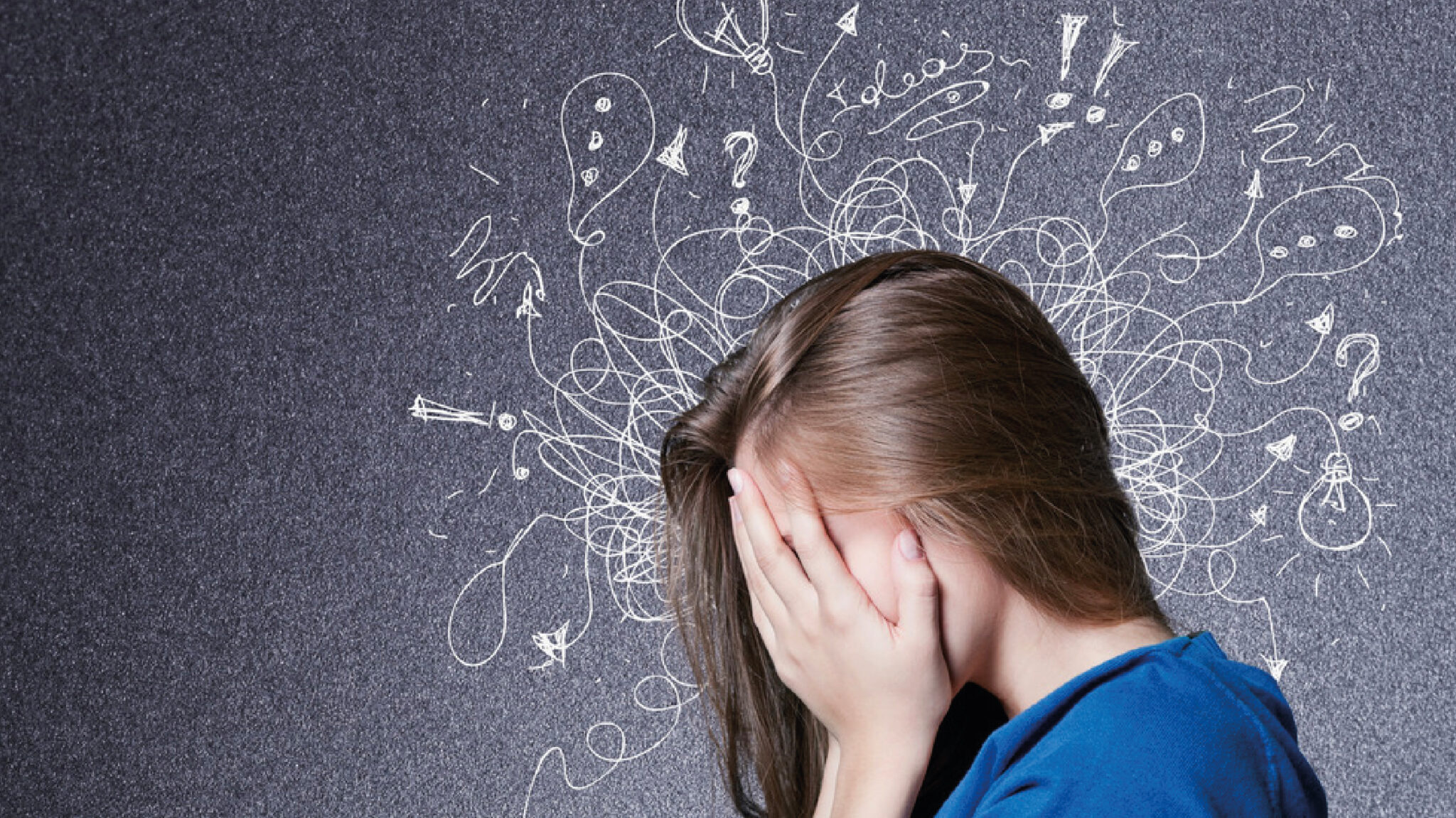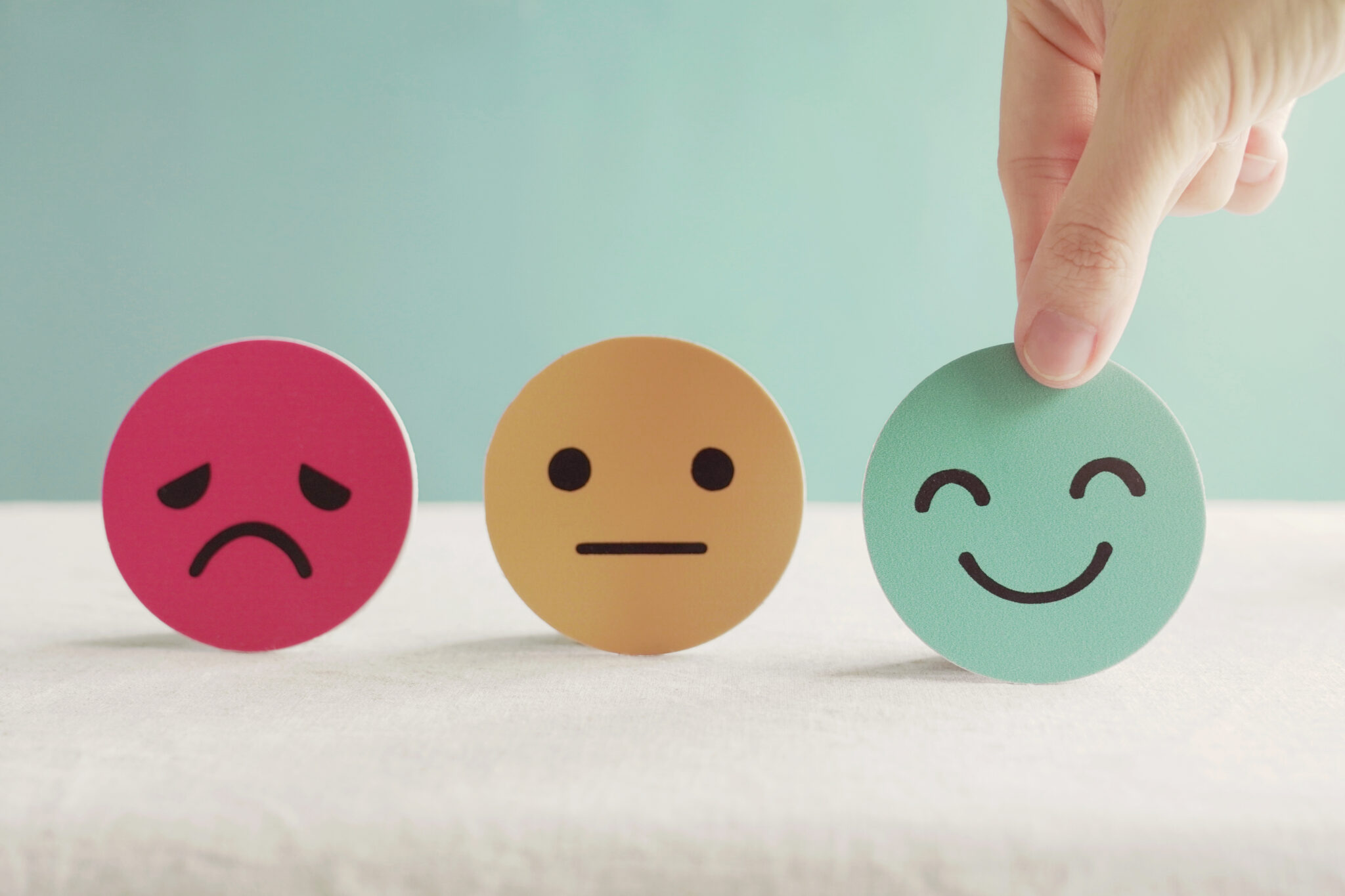Fear and anxiety have been constantly in the air in recent years, and sometimes we have started to consider it normal. When does anxiety become an anxiety disorder? What are the symptoms of anxiety disorder? Why do anxious thoughts prevent falling asleep and how to cope with insomnia most effectively? We will provide a detailed overview of these and other questions below.
What is anxiety?
Anxiety is our body’s normal reaction to a new situation. Anxiety is an emotion like any other, and about 300 emotions have been counted: sadness, joy, anger, surprise, etc. Emotions come and go, and sometimes they intensify.
Usually, you feel anxious when faced with a new challenge – taking an exam, giving a presentation to a crowded room, or waiting outside the doctor’s office. Anxiety helps you pull yourself together and give your best. Anxiety subsides after the specific situation and does not interfere with your daily life.
What is an anxiety disorder?
Sometimes, anxiety does not subside after the trigger has passed, or it arises without any reason. In this case, we are talking about an anxiety disorder.
Anxiety and anxiety disorder are often confused or considered the same condition. Anxiety becomes an anxiety disorder when anxiety is too intense, lasts too long, and starts interfering with your daily life. Anxiety disorder clearly prevents thinking clearly and making good decisions in daily life.
What are the symptoms of anxiety disorder?
In an anxiety disorder, a person experiences both mental and physical symptoms of anxiety.
Mental symptoms of anxiety disorder:
- Worrying without reason
- Fear (including fear of death)
- Panic attacks
- Tension
- Startling easily
- Fear of losing control
- Inability to relax
Physical symptoms of anxiety disorder:
- Heart palpitations
- Shortness of breath and choking sensation
- Chest tightness
- Muscle tension and headaches
- Weakness
- Dizziness
- Sweating
- Sleep disturbances, i.e., insomnia
These symptoms significantly affect a person’s quality of life. People with anxiety disorders may feel that they cannot manage their daily life. They often begin avoiding situations that cause anxiety, which limits their social, work, and school obligations.
One symptom of anxiety may also manifest as paradoxical anxiety. If one night you can’t fall asleep normally, the next night you’ll start worrying whether sleep will come. And so, a person quickly falls into a vicious cycle.
Why doesn’t anxiety let you fall asleep?
Instead of calming down, you keep thinking over and over about your stress source, worries, and disappointments. It seems like these thoughts are on a loop, and you can’t stop them. If, just before falling asleep, you’re still caught up in anxious thoughts, good sleep won’t happen.
When the body is anxious, a hormone called cortisol spreads through our organism. This hormone is essential for dealing with situations “fight or flight”. At other times, it causes various issues, including anxiety disorders, depression, and mental restlessness. This is why it is hard to fall asleep during stressful periods, as the body thinks it’s a life-or-death fight.
When a person feels fear and is stressed, they also sleep differently. Even if they finally manage to get some sleep, the stress hormone cortisol creates alertness, and the sleep remains shallow. To sleep calmly and deeply, it’s important to relax before going to bed.
What does insomnia lead to?
Increasingly, the concept of sleep debt is being discussed because it affects a large number of children, young people, and working adults. After sleep debt, anxiety and frustration levels rise significantly, which, in turn, severely disrupts sleep.
Mental health and sleep are closely connected. Sleep problems often arise during more stressful periods, and conversely, sleep disorders themselves create mental fatigue and anxiety disorders.
When a person doesn’t get enough sleep, they are tired and irritable the next day. Sleep debt occurs when the night sleep is short or interrupted. The recommended sleep duration at night is individual and falls between 6.5 – 11 hours.
If you find it difficult to fall asleep, wake up often, or have nightmares, then you are struggling with insomnia. People with sleep disorders often become emotional in their decisions and react more sharply to comments from others. As a result, relationships with loved ones or colleagues may suffer.
In addition to sleeplessness, concentration ability decreases significantly, memory problems arise, and stress tolerance is reduced.
Why doesn’t anxiety let you fall asleep?
Instead of calming down, you keep thinking over and over about your stress source, worries, and disappointments. It seems like these thoughts are on a loop, and you can’t stop them. If, just before falling asleep, you’re still caught up in anxious thoughts, good sleep won’t happen.
When the body is anxious, a hormone called cortisol spreads through our organism. This hormone is essential for dealing with situations “fight or flight”. At other times, it causes various issues, including anxiety disorders, depression, and mental restlessness. This is why it is hard to fall asleep during stressful periods, as the body thinks it’s a life-or-death fight.
When a person feels fear and is stressed, they also sleep differently. Even if they finally manage to get some sleep, the stress hormone cortisol creates alertness, and the sleep remains shallow. To sleep calmly and deeply, it’s important to relax before going to bed.
What does insomnia lead to?
Increasingly, there has been talk about sleep debt, as it affects a large number of children, young people, and working adults. After sleep debt, anxiety and frustration levels rise significantly, which, in turn, severely disrupts sleep.
Mental health and sleep are closely connected. Sleep problems often occur during more stressful periods, and conversely, sleep disorders themselves cause mental fatigue and anxiety disorders.
When a person doesn’t get enough sleep, they are tired and irritable the next day. Sleep debt occurs when the night sleep is short or interrupted. The recommended sleep duration at night is individual and falls between 6.5 – 11 hours.
If you find it difficult to fall asleep, wake up often, or have nightmares, then you are struggling with insomnia. People with sleep disorders often become emotional in their decisions and react more sharply to comments from others. As a result, relationships with loved ones or colleagues may suffer.
In addition to sleeplessness, concentration ability decreases significantly, memory problems arise, and stress tolerance is reduced.
How to break the vicious cycle of anxiety and insomnia?
Anxiety and insomnia are often related problems that intensify each other. Because of anxiety, it is difficult to fall asleep, and when sleep is interrupted, anxiety worsens even more. To break the vicious cycle, it is important to address both issues simultaneously:
- Lifestyle changes: regular exercise, a healthy diet, sufficient sleep, and stress reduction help reduce anxiety and improve sleep.
- Herbal remedies: some herbal remedies, such as ashwagandha, jasmine, golden root, lemon balm, and melatonin, effectively relieve anxiety and improve sleep quality.
- Medications: medications may be necessary in more severe cases.
If anxiety and insomnia worsen, the following problems may arise:
- Chronic fatigue
- Work or school problems
- Increased risk of accidents
- Cardiovascular diseases
- Serious mental health issues
These symptoms significantly impact a person’s quality of life. People with anxiety disorders may feel that they cannot manage their daily life. They often start avoiding situations that cause anxiety, which limits their social, work, and school obligations.
One symptom of anxiety can also manifest as paradoxical anxiety. If one night you can’t fall asleep normally, the next night you begin to worry whether sleep will come. And so, the person quickly gets stuck in a vicious cycle.
Why can’t anxiety let you fall asleep?
Instead of calming down, you keep thinking again and again about your stress source, worries, and disappointments. It feels like these thoughts are playing on a loop, and it’s impossible to stop them. If you’re still trapped in anxious thoughts right before falling asleep, there’s no chance of good sleep.
When the body is anxious, a hormone called cortisol spreads in our system. This hormone is important to help us deal with situations “fight or flight”. At other times, it causes various problems, including anxiety disorders, depression, and mental unrest. That’s why it’s hard to fall asleep during stressful periods, as the body thinks it’s fighting for its life.
When a person feels fear and stress, they also sleep differently. Even if they finally manage to fall asleep, the stress hormone cortisol creates alertness, and the sleep is shallow. To sleep calmly and deeply, you need to relax before going to bed.
What does sleep disorder lead to?
There has been an increasing discussion about sleep debt, as it affects a large number of children, young people, and working adults. After sleep debt, anxiety and frustration levels rise significantly, which, in turn, severely disrupts sleep.
Mental health and sleep are closely related. Sleep problems often arise during stressful periods, and conversely, sleep disorders themselves create mental fatigue and anxiety disorders.
When a person doesn’t get enough sleep, they are tired and irritable the next day. Sleep debt occurs when the night sleep is short or interrupted. The recommended sleep time at night is individual and ranges between 6.5 – 11 hours.
If you find it difficult to fall asleep, wake up often, or have nightmares, then you are struggling with sleep disorder. People with sleep disorders often become emotional in their decisions and react more sharply to comments from others. As a result, relationships with loved ones or colleagues may suffer.
In addition to sleeplessness, concentration ability decreases significantly, memory problems arise, and stress tolerance is reduced.
Why can’t anxiety let you fall asleep?
Instead of calming down, you keep thinking again and again about your stress source, worries, and disappointments. It feels like these thoughts are playing on a loop, and it’s impossible to stop them. If you’re still trapped in anxious thoughts right before falling asleep, there’s no chance of good sleep.
When the body is anxious, a hormone called cortisol spreads in our system. This hormone is important to help us deal with situations “fight or flight”. At other times, it causes various problems, including anxiety disorders, depression, and mental unrest. That’s why it’s hard to fall asleep during stressful periods, as the body thinks it’s fighting for its life.
When a person feels fear and is stressed, they sleep differently. Even if they finally manage to fall asleep, the stress hormone cortisol creates alertness, and the sleep is shallow. To sleep peacefully and deeply, it is necessary to relax before falling asleep.
What does sleep disorder lead to?
- for shift work
- on long flights
- in the case of delayed and early sleep syndrome
- if it takes more than 20 minutes to fall asleep
If sleep disorders are caused by anxious thoughts, melatonin alone is not enough. It is important to also consider traditional herbal remedies, such as valerian, lemon balm, hops, and St. John’s wort. These help to relax and reduce tension, which in turn promotes faster falling asleep and a peaceful night’s sleep.
Say “NO” to anxiety and “YES” to quality sleep tonight!










